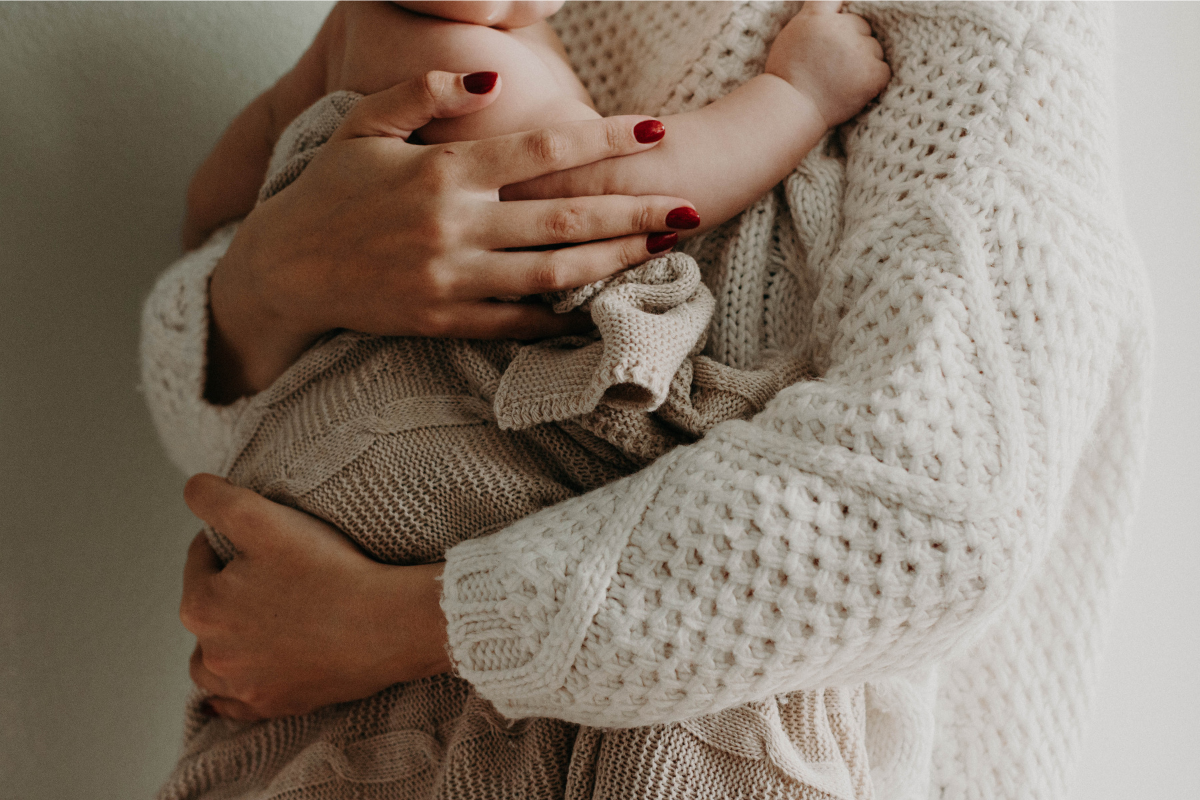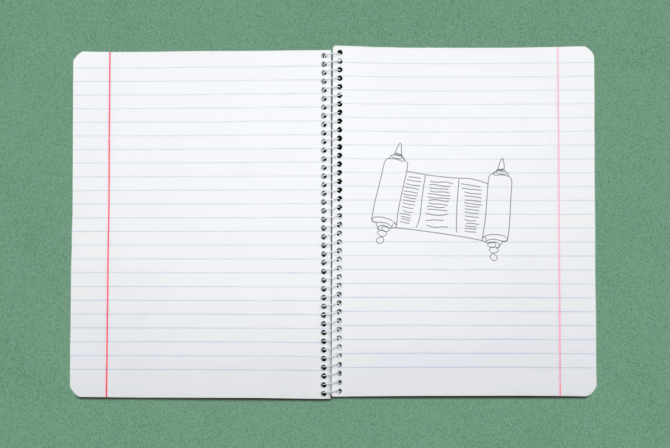I’m pregnant. It’s the best of times. After a first pregnancy that ended in a miscarriage the day my grandma died, and a second pregnancy that I couldn’t enjoy because I was haunted by the fear that the end result would be more loss, pregnancy number three is in many ways where I’m hitting my stride. My arms are full with the most wonderful toddler imaginable. When my husband and I started thinking about trying for another baby, I got to authentically say the words that I wish for everyone to hold at some point in their lives: I am 100% fulfilled with where we are. Anything else that comes is an extra blessing.
And now, that blessing is on the way. My son will be a big brother, I’ll be sleep deprived but get to watch a sibling bond develop, and my dogs will have a 1:1 ratio with my humans.
Except I’m finding myself in a new state of existential dread. Not about COVID this time, or giving birth with a mask on, but about what it means to be a Jewish mama to beautiful Jewish babies in a world that has spent the last year showing us the uncomfortable truth: If my perfect Jewish babies and I were ripped from our beds by terrorists and taken into hell, if they were taken from me and dragged into an unknown darkness for 11 months, the world wouldn’t rise up to save us. This pregnancy, when insomnia sets in, my mind conjures nightmares that are the reality for a still-captive 109 Israeli men, women and babies.
In the immediate days post-October 7, I was not so secretly happy when my toddler would have a hard time sleeping. I would take him into bed with me, ostensibly for his comfort, but really so that I could feel the weight of his sturdy little body on my increasingly numb arm, and feel his contented breaths on my face. With these physical points of contact, I could remind myself that he was safe, I was home, and though my heart was broken, I was intact.
As he’s grown more verbal, he’s giving me the Jewish mama experiences I always dreamt of. He loves Shabbat, and feels no need to limit that love to Friday nights and Saturday mornings. Instead, he points at the candlesticks throughout the week, covers his eyes and commands “Amen!” until I agree to light the candles, modeling the blessings and the naming of each member of our family, and kissing after we say “amen.” He grabs his stuffed Torah and announces “Torah mine!” in order to kick off a chorus of “I’m a Jewish Child and I’m Proud.” My Jewish educator/mama/nerd heart could not be prouder.
But then we leave our house, and he yells “Torah mine!” and I have to make the choices that I spend my day job advising others on, that are so much harder when they’re your own. I don’t want him to silence the volume of his Jewish joy for one second. But my eyes are wide open, monitoring the world for who is a friend, who is silent and who actively wishes harm on my growing Jewish family. My mandate as a mama is to protect, and now I need to balance — how do I nurture Jewish joy in a world of Jewish vulnerability?
Do I tell the nurse, so excited about my December 25 due date, that ironically this year it is a holiday for us too, but not the one she’s thinking of? That the necklace I’m wearing is actually a dog tag in honor of the hostages? That yes, my husband and I have a first name picked out, but are still debating if the middle name for this baby should be an October 7 tribute, or if we should use a hostage name, or if that’s too much of a burden for a baby to hold from the eighth day of their life on? That the last time I planned a bris I was stressed enough without having to make sure we print song sheets with Acheinu on them, and wondering if we should print pictures of Ariel and Kfir Bibas, the baby boys still in captivity who sit in my broken heart while my son fills my arms and the new baby fills my belly?
Ariel and Kfir, and their parents Shiri and Yarden, are the constant companions to this pregnancy. My son sits in between the two boys in age, and ever since the world saw their flaming red hair as they were taken into Hamas captivity, they are the ghosts present at every new milestone that my son Omer reaches. We go to the zoo, and I picture them captivated by the gorillas too, joining in our chorus of “ooo ooo ooo!” Omer learns a new word, and I wonder, do the wondrous and uneventful markers of toddlerhood register in the tunnels under Gaza? During my first trimester, Omer fell asleep on my lap on an airplane and my back went numb and my neck went stiff and my husband offered to try to move him. And I found myself in tears, thinking about Shiri Bibas. My son is with me, my baby is growing inside, and I get the privilege of worrying about my own comfort. In the best-case scenario, this other mama, who in another life could have been my friend, hasn’t been able to relax her back or rest her arms in almost a year. We last saw her with her arms around her boys, shielding them from the evil of a world that wants to hurt them, and as far as we know, that’s still where she is.
So where am I? I’m counting the weeks to go in this pregnancy, refusing to accept a world where there are still hostages by the time I have this baby. I’m spending my time in waiting rooms refreshing Israeli news sites. I’m content in the Israeli names I’m committed to giving my children, while knowing that I’m burdening them with the weight of the Jewish people every time they introduce themselves. I’m torn between my firmly held belief in the importance of being wholly part of the world in which we seek to thrive, and an increasing instinct to nest deeply in the insular bubble of Jewish safety.
I’m holding the truths as deeply inside me as the growing baby: I am a proud Jewish mama, raising proud Jewish children. And I’m doing it in a world that is increasingly hostile to our presence, let alone our ability to thrive, within it. I’m as committed to Jewish joy being the benchmark of our family as I was on October 6, 2023 — but like so many, my eyes are open to the reality that joy is no longer simple. I’m literally embodying Jewish hope in the form of the next generation, and for the piece of it in my arms, and the piece of it in my belly, I have to make sure it’s a beautiful one.








